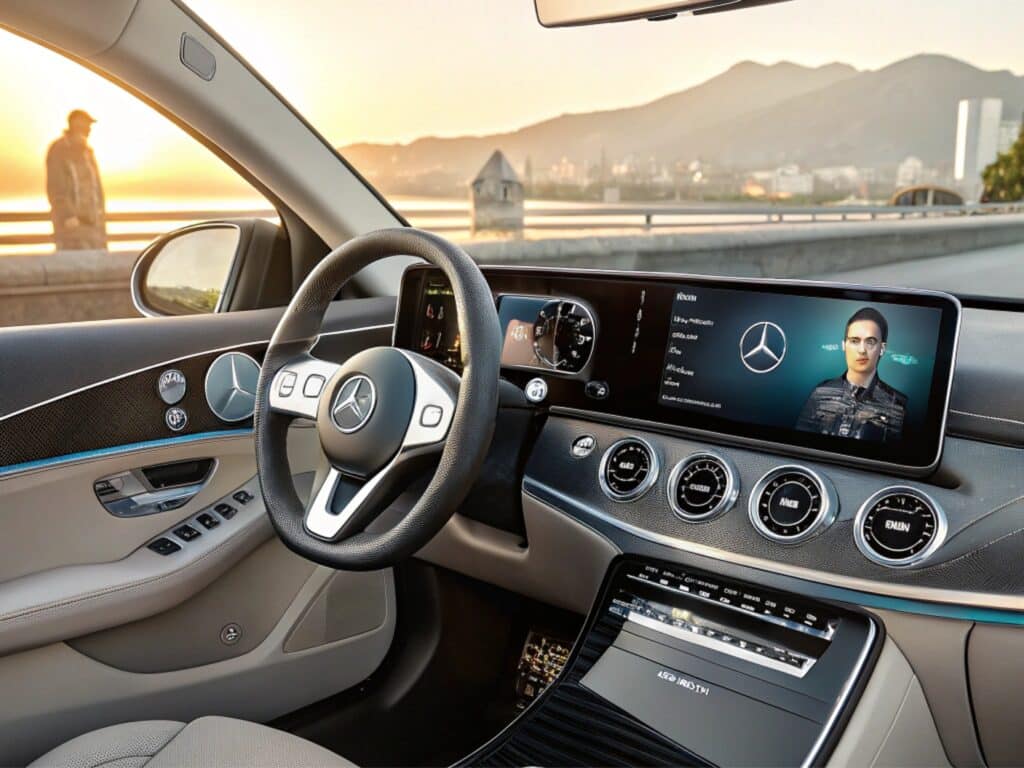The automotive industry is undergoing a paradigm shift, driven by advancements in artificial intelligence and machine learning. At the forefront of this transformation is Mercedes-Benz, integrating Google’s Automotive AI Agent into its next-generation MB.OS operating system. This evolution in voice interaction promises to redefine how drivers engage with their vehicles, making interactions more intuitive, personalized, and seamlessly integrated into daily routines.
The Next-Gen MBUX Virtual Assistant: A Leap Forward for Mercedes Cars
Mercedes-Benz’s MBUX (Mercedes-Benz User Experience) system has long been a sort of benchmark in automotive infotainment. Initially introduced in 2018, it set the standard for voice-activated controls. However, with the inclusion of Google’s Automotive AI Agent, the system is evolving from a command-based interface to a truly conversational AI, enhancing both convenience and efficiency.
According to officially available Mercedes Benz information, The upgraded MBUX Virtual Assistant will be featured in the upcoming Mercedes CLA, offering an enhanced human-machine interaction experience. Unlike previous iterations that relied on predefined commands, this new system implements Google’s Gemini AI models to facilitate more natural, multi-turn dialogues. By understanding context, predicting user needs, and providing near real-time information, it brings an unprecedented level of intelligence to in-car assistants.
Key Technological Advancements: What Sets It Apart?
The new AI assistant supports multimodal reasoning, integrating voice, touch, and visual inputs to create a more intuitive experience. By analyzing user behavior, it can predict actions—such as suggesting a frequently visited location or playing morning news updates—making interactions seamless and proactive.
Unlike traditional systems that require rigid command structures, the AI Agent understands natural speech, recognizes nuances, and maintains conversational context over multiple exchanges. This enables drivers to ask follow-up questions, refine requests, and receive personalized responses without repeating information.
Integrated with Google Maps, the AI Agent provides dynamic navigation updates, real-time traffic analysis, and localized recommendations for restaurants, fuel stations, and landmarks. It can also cross-reference user calendars to suggest optimal departure times based on current road conditions.
Running on Google Cloud’s Vertex AI platform, the system ensures continuous improvement through over-the-air (OTA) updates. This architecture allows Mercedes-Benz to introduce new capabilities and refine existing ones without requiring hardware modifications.
How Mercedes-Benz Stands Out in Terms of Competition?
While Mercedes-Benz is taking a bold step with AI integration, it is not alone in this pursuit.
Competitors such as BMW, Volkswagen, and Hyundai are also investing heavily in generative AI for their vehicle operating systems. However, Mercedes-Benz differentiates itself through deep integration with Google’s cutting-edge AI and a focus on emotional intelligence in its assistant’s personality traits—natural, predictive, personal, and empathetic.
The introduction of AI-powered assistants is a radical change in the automotive sector. As vehicles become increasingly software-defined, car manufacturers are shifting toward a service-oriented model, monetizing AI features through premium subscriptions.
The collaboration between Mercedes-Benz and Google highlights a growing convergence between the automotive and tech industries. However, it is yet to be seen if these two partner companies prevail against competitors, so we will closely follow Mercedes Benz news regarding its progress with MBUX and the implementation of Google’s AI Agent platform.
The Road Ahead: What’s Next for AI in Automotive?
Looking beyond the current iteration of in-car AI, it is certain that future AI assistants will transit towards even greater personalization. They will learn individual driver preferences with greater precision, adapting voice tones, suggesting personalized routes, and even curating entertainment options based on mood detection.
As autonomous driving technology advances, AI assistants (not just those in Mercedes cars) will evolve from facilitators of driver convenience to core navigators of autonomous experiences, coordinating vehicle functions and passenger interactions seamlessly. In addition to that, voice assistants may soon work in tandem with AR displays, providing real-time overlays of traffic conditions, navigation guidance, and contextual information within the driver’s field of view.
In the future, we can expect that vehicles will act as hubs within a broader smart ecosystem, integrating with home automation systems, wearable technology, and IoT devices for a fully connected lifestyle.
If you are interested in this topic, we suggest you check our articles:
- The Role of AI in Self-Driving Cars
- Tesla Cybercab and Robovan Release: The Evolution of AI Continues
- Driving Smarter with Waze Voice Assistance and AI Technology
Source: Google Cloud, The Verge, The Verge

